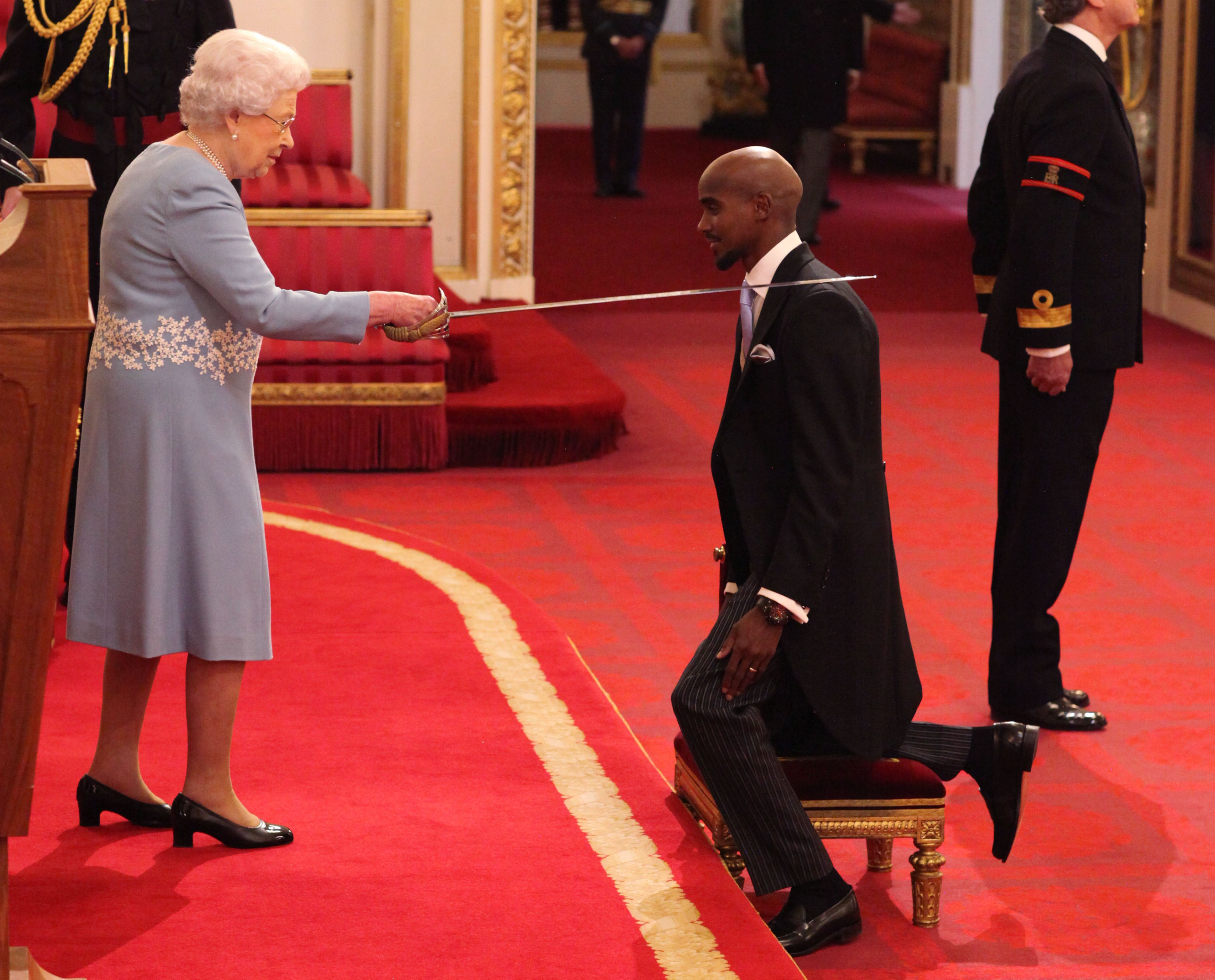How does the British honours system work?
Here is a look at the inner workings of the system.

Your support helps us to tell the story
From reproductive rights to climate change to Big Tech, The Independent is on the ground when the story is developing. Whether it's investigating the financials of Elon Musk's pro-Trump PAC or producing our latest documentary, 'The A Word', which shines a light on the American women fighting for reproductive rights, we know how important it is to parse out the facts from the messaging.
At such a critical moment in US history, we need reporters on the ground. Your donation allows us to keep sending journalists to speak to both sides of the story.
The Independent is trusted by Americans across the entire political spectrum. And unlike many other quality news outlets, we choose not to lock Americans out of our reporting and analysis with paywalls. We believe quality journalism should be available to everyone, paid for by those who can afford it.
Your support makes all the difference.The release of the Queen’s Birthday Honours ahead of the Platinum Jubilee provides an opportunity to celebrate individual outstanding achievements and contributions to British society.
But who decides how honours are handed out, and what exactly do they recognise?
Here the PA news agency takes a look at the inner workings of the honours system:
– What are honours for?
Honours as part of orders of chivalry have been given by monarchs since the Middle Ages.
In recent times, the British honours system recognises people who have “made achievements in public life” and “committed themselves to serving and helping Britain”.
It acknowledges long-term volunteers, innovators, entrepreneurs, individuals displaying “moral courage”, those making a difference in their community or field of work or people improving life for others less able to help themselves.
Honours are given to people involved in a range of fields, including sport, health, science and technology, education, business and the arts and media.
Gallantry awards recognising bravery can also be given to members of the armed forces and the emergency services and civilians.
– How are people nominated for honours?
Any member of the public or an official body can nominate someone for an honour.
UK nationals and citizens of 15 Commonwealth “realms” of which the Queen is head of state are eligible for nomination.
People living or working overseas, whose achievements were made in another country or in the UK and have a significant international element, can be nominated too.
Nominations are submitted to the Cabinet Office’s Honours and Appointments Secretariat, which oversees the honours system.
Someone who has made an exceptional contribution to the response to the coronavirus crisis in the UK can also be nominated.
Non-British or Commonwealth country citizens can be considered for “honorary” awards.
– Who approves nominations?
Consideration of nominations can take 12 to 18 months.
The suitability of nominees submitted to the Honours and Appointments Secretariat is established through “merit” and “probity and propriety” checks.
This vetting process, to avoid bringing the system into “disrepute”, can involve the input of government departments, regulatory bodies, professional organisations, HM Revenue and Customs and the ACRO Criminal Records Office.
A group of 10 independent honours committees, each covering a specialist subject area such as sport or health, consider nominations.
The recommendations of these groups of independent experts and senior civil servants are passed on to the Prime Minister and, ultimately, the Queen for approval.
The Foreign, Commonwealth and Development Office (FCDO) oversees the Diplomatic Service and Overseas List.
– When are honours announced?
Twice a year – at new year and in June on the Queen’s official birthday.
The lists are published in the official newspaper of the Crown, The Gazette.
Once all recipients have been decided and checked, the Central Chancery of the Orders of Knighthood at St James’s Palace arranges investitures for the presentation of medals.
These ceremonies, outside of pandemic times held about 30 times a year, take place at Buckingham Palace, Windsor Castle and occasionally the Palace of Holyroodhouse in Edinburgh, and are hosted by the Prince of Wales, the Duke of Cambridge or the Princess Royal.
In the past, the Queen would also have hosted investiture ceremonies.
– What types of honours are there?
Lists typically comprise knights and dames, appointments to the Order of the British Empire and gallantry awards.
The most senior ranks of the Order of the British Empire are Knight or Dame Grand Cross (GBE) and Knight or Dame Commander (KBE or DBE).
These ranks permit the use of the title “Sir“ for men and “Dame” for women, with the honour given to those who have made major contributions in any field, usually at a national level.
The order’s ranks, after knighthood or damehood, are Commander (CBE), Officer (OBE) and Member (MBE).
Other honours include:
– Companion of Honour (CH) – The honour recognises significant contributions to the arts, science, medicine or government over a long period of time. It is limited to just 65 people at any one time.
– British Empire Medal (BEM) – Evolved from a medal associated with the creation of the Order of the British Empire, the BEM honours local community service that has made a significant difference.
Honour recipients are appointed to an order of chivalry, that have different ranks, with most appointments made to the Order of the British Empire.
Others include the Royal Victorian Order (RVO), to which the Queen personally appoints people for services to the British sovereign.
The Order of the Bath is for senior civil servants and military officers, while the Order of St Michael and St George recognises service in a foreign country, or in relation to foreign and Commonwealth affairs.
The Royal Red Cross (RRC), Queen’s Police Medal (QPM), Queen’s Fire Service Medal (QFSM) and Queen’s Ambulance Service Medal (QAM) respectively recognise the services of nurses, police, firefighters and ambulance service workers.